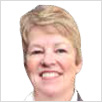
|
Dr. Wendy Watson-Wright
Assistant Director General & Executive Secretary
Intergovernmental Oceanographic Commission of UNESCO
France
Biography
Wendy Watson-Wright is the Executive Secretary and Assistant Director General of the Intergovernmental Oceanographic Commission of the United Nations Educational, Scientific and Cultural Organization (IOC-UNESCO). Headquartered in Paris, IOC-UNESCO has the mandate within the United Nations system for ocean science, observations, data and information exchange and services, including global tsunami warning systems. It is also the competent international organization for marine scientific research under the United Nations Convention on the Law of the Sea.
From 2001 to 2009, she was Assistant Deputy Minister, Science, for Fisheries and Oceans Canada in Ottawa where she was responsible for providing the policy direction and scientific leadership for all science activities in the department’s fifteen science institutes throughout Canada.
She has been on several boards including the Canadian Foundation for Climate and Atmospheric Science, Ocean Networks Canada, ArcticNet and the Strategic Advisory Board for the EU Joint Programming Initiative on Oceans (JPI Oceans) and is an invited member of the United Nations’ Sustainable Development Solutions Network’s (SDSN) Thematic Group centered on biodiversity and ecosystem services.
A Killam scholar, Dr. Watson-Wright holds a Ph.D. in Physiology from Dalhousie University in Halifax, Nova Scotia, Canada.
Abstract
Ocean Science for Actionable Knowledge
The ocean makes the planet inhabitable for humans, by moderating and controlling weather and climate, and by providing food, energy and even the oxygen we breathe. It is also distressed, vulnerable and in need of science based stewardship. The IOC strives to respond to these international challenges by developing sustainable ocean management tools which help to maintain ocean services and protect the ocean for future generations. IOC objectives are summarized by its Main Lines of Action: Healthy ocean ecosystems and sustained ecosystem services; Effective preparedness for ocean related hazards; Increased resiliency of society to climate change through scientifically founded services; and Enhanced knowledge of emerging ocean science issues.
All of these call for the same thing: Actionable knowledge about the ocean to aid people who depend upon the ocean for sustainable services. Managing sustainable ocean systems depends upon an unbroken chain, from observations and monitoring through data management and information systems, to analysis and forecasts and finally to actionable knowledge designed by and for the end users. Too often users of ocean knowledge products are left out of system designs until the final step. The IOC convenes nations within the intergovernmental framework to coordinate ocean observation and information systems, ensuring that marine knowledge products are actionable and fit the needs of the IOC Member States.
|

